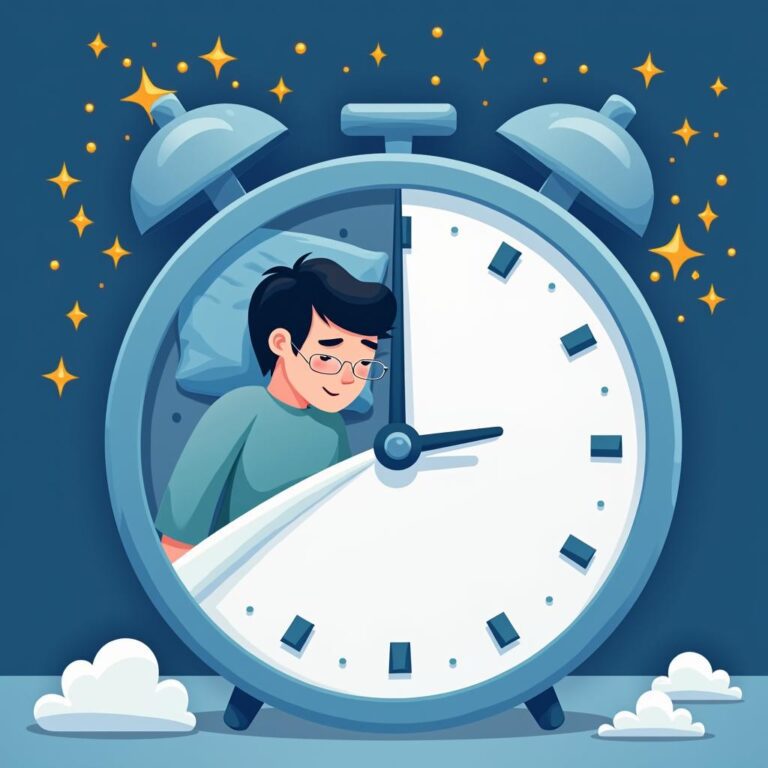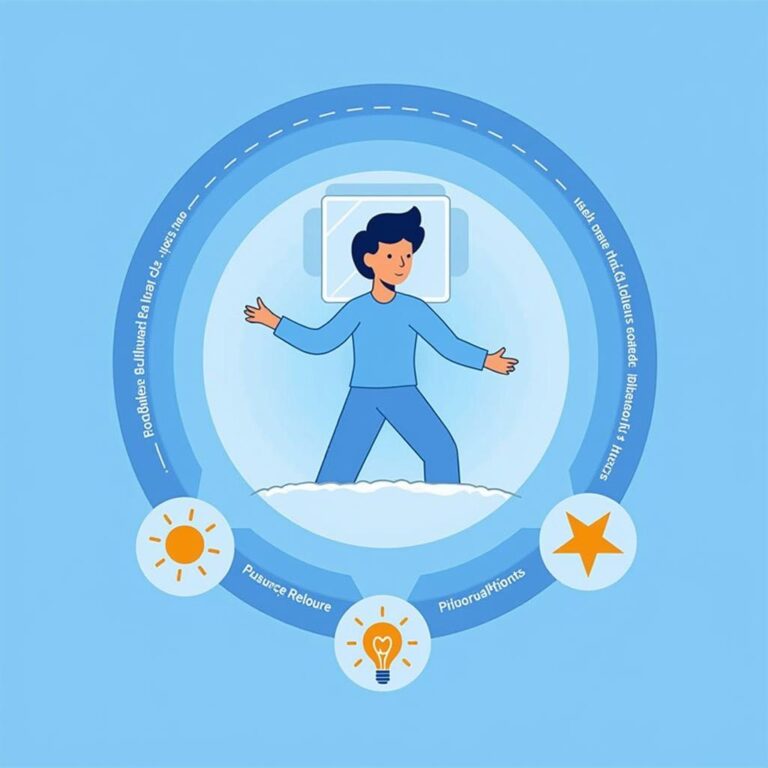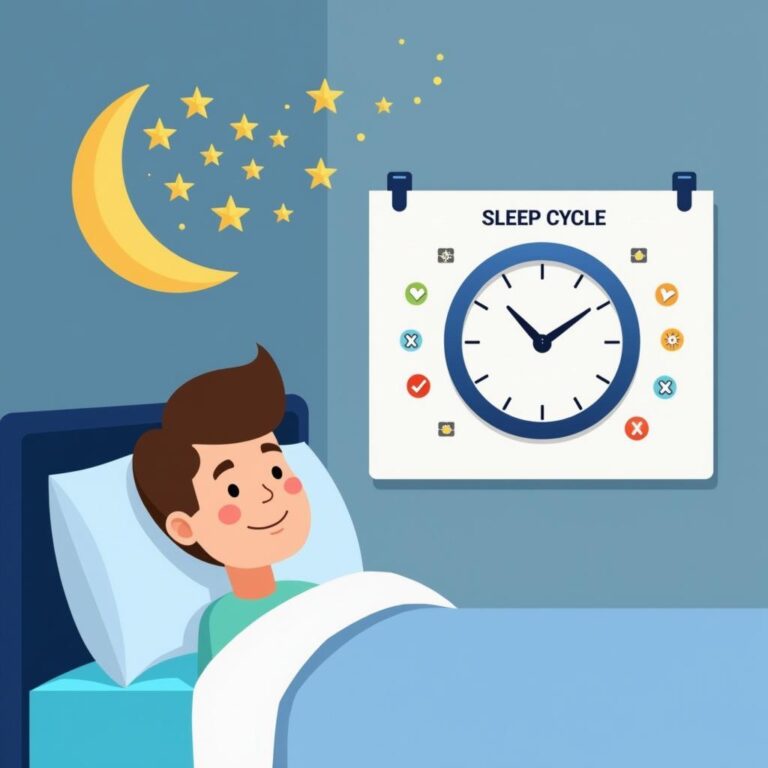In the fast-paced world of entrepreneurship, entrepreneurs often sacrifice sleep to chase their dreams. However, understanding and optimizing sleep cycles can significantly boost productivity, enhance creativity, and ultimately lead to greater entrepreneurial success. This article explores the intricate relationship between sleep cycles and entrepreneurial performance and how to cultivate healthier sleep habits for improved outcomes.
Understanding Sleep Cycles
Sleep is divided into several stages that form a cycle, typically lasting about 90 minutes, consisting of non-REM (Rapid Eye Movement) and REM sleep. Each stage plays a vital role in mental and physical recovery. Chronic deprivation or irregular sleep patterns can disturb these cycles, leading to impaired cognitive functions.
Stages of Sleep
To comprehend how sleep cycles affect entrepreneurial success, it’s essential to understand the stages of sleep:
- Stage 1: Light sleep; transition from wakefulness to sleep.
- Stage 2: Deeper sleep where heart rate slows, and body temperature drops.
- Stage 3: Deep sleep; essential for physical recovery.
- REM Sleep: Critical for cognitive functions such as learning, memory, and creativity.
The Link Between Sleep and Productivity
Well-rested entrepreneurs tend to make more informed decisions, think creatively, and maintain higher levels of energy throughout their workday. Research indicates that sleep deprivation negatively impacts cognitive abilities, emotional regulation, and overall performance.
Enhanced Decision-Making
Entrepreneurs are frequently required to make decisions that can impact the trajectory of their businesses. Adequate sleep can improve analytical thinking, allowing entrepreneurs to evaluate risks and rewards better. A well-rested mind processes information more effectively, enabling clearer judgment and strategic thought.
Boosted Creativity
Many successful entrepreneurs attribute their breakthrough ideas to moments of inspiration that often occur during or following sleep. REM sleep, in particular, plays a crucial role in fostering creativity. Dreams during this stage can help entrepreneurs brainstorm innovative ideas or find solutions to complex problems.
Sleep Deprivation and Its Effects
Lack of sleep can lead to detrimental outcomes for business leaders. Several studies have linked sleep deprivation to poor decision-making and decreased productivity. The consequences of sleep loss can include:
- Impaired Judgment: Entrepreneurs may struggle with making sound decisions under sleep deprivation.
- Reduced Focus: Inability to concentrate can lead to missed opportunities and details that can affect business outcomes.
- Increased Stress: Chronic sleep deprivation can escalate stress levels, leading to burnout, which negatively impacts business health.
Strategies to Optimize Sleep Cycles
To improve entrepreneurial success, incorporating strategies to optimize sleep cycles is essential. Here are some effective methods:
1. Stick to a Sleep Schedule
Consistency is vital when it comes to sleep. Going to bed and waking up at the same time each day helps regulate your body’s internal clock, promoting better sleep quality. This routine conditions your mind and body, fostering rejuvenation.
2. Create a Restful Environment
Ensure your bedroom is conducive to sleep. This means a comfortable mattress and pillows, controlling room temperature, and minimizing noise and light disturbances. Consider implementing blackout curtains and white noise machines for optimal conditions.
3. Limit Screen Time Before Bed
The blue light emitted by smartphones and computers can hinder the production of melatonin, the hormone responsible for sleep readiness. Try to limit screen time at least one hour before bed to allow your body to prepare for rest naturally.
4. Prioritize Sleep Hygiene
Establishing good sleep hygiene can improve both sleep quality and duration. This includes winding down with relaxing activities, avoiding heavy meals close to bedtime, and limiting caffeine intake.
5. Explore Napping
If full nights of sleep are hard to come by, strategic napping can provide an energy boost. Short naps (around 20 minutes) can enhance alertness and performance without interfering with nighttime sleep.
Case Studies of Successful Entrepreneurs
Numerous successful entrepreneurs emphasize the importance of sleep in their routines:
Elon Musk
Elon Musk, CEO of Tesla and SpaceX, reportedly prioritizes sleep and sees it as a fundamental component of maintaining peak performance. He often encourages a healthy work-life balance that allows for adequate rest.
Richard Branson
Richard Branson emphasizes the point that productivity and innovation stem from maintaining a healthy lifestyle, including sufficient sleep. He often takes time to prioritize personal well-being above the frenzy of entrepreneurial obligations.
Conclusion
In conclusion, sleep cycles play a crucial role in enhancing entrepreneurial success. By prioritizing sleep and understanding its impact on cognitive functions and overall well-being, entrepreneurs can enhance their productivity, creativity, and decision-making skills. Building habits that optimize sleep can lead to more effective leadership, innovative solutions, and the sustained growth of their ventures.
Investing in a good night’s sleep is, therefore, not just a personal health choice but a strategic business move. As entrepreneurs continue to navigate the challenges of business ownership, recognizing the importance of sleep could be the missing piece to unlocking their full potential. Embrace the power of restorative sleep, and watch your entrepreneurial journey flourish.







